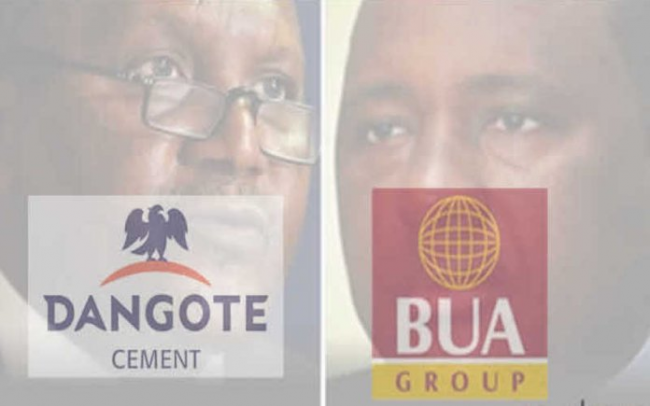Nigeria’s cement industry is in a dire need of healthy competition, as this would ensure that cement prices are brought down and there is a fair playing field, this is according to the Chairman of the Nigerian Institution of Estate Surveyors and Valuers (NIESV), Adedotun Bamigbola.
Bamigbola shared this in an interview with BizWatch Nigeria on the issue of housing in Nigeria, and the critical role of the Federal Government in enacting policies that would ensure that materials required for construction are locally produced and that no player is favoured over the other.
According to a report by financial journal Bloomberg, Dangote Cement’s global margin stands at 42 percent, in contrast to the 17 percent of the average global margin.
In Nigeria alone, Dangote Cement has cornered 65 percent of the cement market, while it has a 41 percent and 13 percent hold of the cement business in Cameroon and Ghana respectively.
Why Dangote continues to amass wealth from a business that has brought no significant innovation baffles many.
Many experts have pointed to favours in high places as the main reason for the chokehold the business has in the industry.
READ ALSO: Senate Okays Customs N1.67 trillion Revenue Target For 2021
They note the businessman’s affiliations with political personalities dating years back, influencing his grip in the price market.
Recently, the high price of a bag of Dangote Cement led to a protest by the Nigerian Students and Youths Association (NISYA).
The group had expressed its displeasure over the alleged increase of the price of “cement from N2,000 to N4,000 in Edo State”, adding that “yet the raw materials were gotten from Edo State.”
Deregulation Of Cement Industry
Bamigbola stated that monopoly in the business of cement can only be checked if the Federal Government “deregulates the industry”.
He added that there is an advantage given to “some” players in the business, stating that “If that advantage can be given to everybody, in such a way that there is a huge competition in the market.”
He maintained that in the presence of competition, prices would drop and there would be a boost in the production of cement in the country aided by the entry of other smaller players.
“We can deregulate the industry in such a way that monopoly is cut off. Where there’s competition there’s a lot of production, and you begin to see prices drop.”
His statement is supported by the former Publicity Secretary, NISYA, Ikehi Lawrence, who said that the government’s responsibility is to put in place price control mechanisms that would stop producers from arbitrarily pricing cement in Nigeria.
Lawrence said, “My problem is that the government should be responsible and responsive. In a serious country, there must be a price control mechanism.”
Monopoly Across Sectors
The Chief Strategy Officer of Dangote Group, Aliyu Suleiman, had, before members of the National Assembly’s Joint committee on the Petroleum Industry Bill (PIB), on February 28, suggested that the rights for petrol be given to only licensed and active refineries in the country.
This raised the monopoly flag, as many Nigerians on social media stated that the conglomerate was seeking to shut out other players in the business and accrue for itself all the privileges that come with production and distribution.
According to journalist David Hundeyin, Dangote wants to “become NNPC”.
Hundeyin, on Twitter, said that Dangote Group leverages “longstanding political connections to take entire sectors of Nigeria’s economy captive at literal gunpoint using state power.”
Government policies that aim to improve local production of goods and services, though commendable, remain monopolistic altars that major players in individual sectors with political affiliations use to corner markets and close the channel of competition thereby maintaining the economic status quo.












